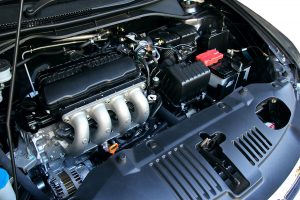How are vehicle safety checks performed?
Stric verification of essential breaking points and parts that could show wear and tear according to manufacturers. We recommend performing regular inspections as manufacturers advice. For this inspections, several parts and indicators are checked, and parts may be replaced.
- Electronic calculators diagnostics
- Maintentance indicator maintentance
- Brakes
- Direction
- Tyres
- Headlights
- Engine oil
- Oil filters
- Parts that should be replaced after certain kilometers according to the manufacturer: dampers and timing belts.
Our multi-brand diagnostics systems allow us to find breakdowns and perform safety checks on any vehicle, always under manufacturers instructions, keeping the original warranty intact. Engine oil levels, tyre maintentance and windshield cleaners must be checked on regularly, even between annual inspections.
Brakes: Efficienet brakes allow for a perfect control of your car. When driving, brakes are activated frequently, especially in the city. Keeping brake pads, break disks and hydraulic system in good condition will guaruantee your safety, no matter the weather conditions or the state of the road. It is important to check on the condition of the break pads, but also the break disks, which become damaged with time as well and should be replaced every 2 times the pads are replaced. Your vehicle’s hydraulic system is essential too. It is necessary to check on its liquid levels. Generally, this liquid can be seen through the translucid tank next to the engine. If the brake pedal becomes too soft or goes deeper than usual, a complete safety check should be performed. Brake systems in bad state causes immediate negative reports on technical inspection.
Make sure to do your vehicle safety checks with us before tehnical inspection. Engine oil is an essential element. It allows you to minimize friction and damage to moving pieces and to keep cilinder pistons in good condition. Engine oil also works as a refrigerant for the mechanics, allowing the system to work in optimal temperature.
Engine oil also filters impurities and residuals originating from the friction of the moving parts. The engine goes through a filter itself, but its quality becomes poorer with time and it is recommended to change it every 15.000 km (this varies for each model), or every year (as water can leak inside the oil tank due to condensation and other reasons).

